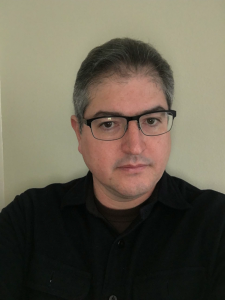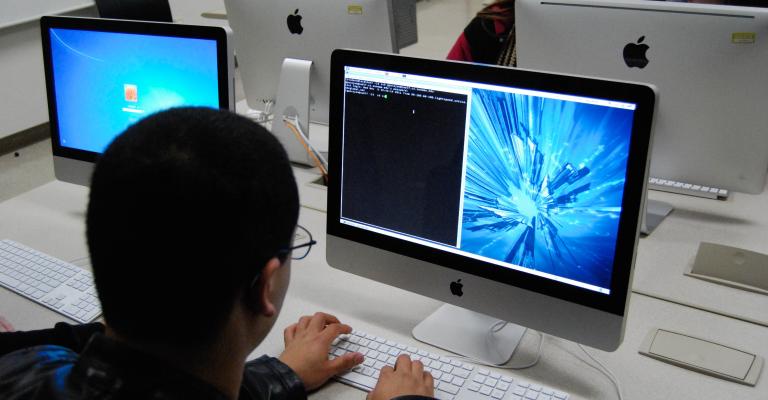CS Colloquium
Spring 2025
Presented by the Computer Science Department
Mondays 12:00 - 12:50pm, Stevenson Hall 1300
All lectures are free and open to the public
Call for Participation Join the Mailing List Colloquium Archive
Ethics Under Pressure: Moral Value Resuscitation for Emerging Computer Scientists

Anthony Wright
Sonoma State University
Stevenson 1301
Monday, February 2, 2026
New Computer Science graduates entering large technology organizations encounter ethical pressures that are rarely addressed in formal curricula: responsibility without authority, execution without context, performance metrics that reward speed over clarity, and organizational environments that normalize silence under uncertainty. These conditions produce not merely ethical dilemmas but ethical state collapse, in which professional judgment is displaced by compliance and moral agency is fragmented by system design and pressure from management.
This presentation introduces Moral Value Resuscitation as a practical, non-ideological framework for sustaining ethical agency under high-velocity professional conditions. Drawing on complexity science, the talk reframes human consciousness as a non-linear dynamical system whose ethical function degrades predictably under cognitive overload, time compression, and performance threat. Ethical failure is thus understood not as individual weakness but as a systems phenomenon requiring state regulation rather than rule memorization.
Participants are taught concrete methods to restore temporal sovereignty—the capacity to momentarily decouple action from external pressure in order to re-engage judgment—through micro-pauses, professional boundary language, and documentation-based ethical resistance. These tools allow early- career engineers to interrupt unethical momentum compelled by management, preserve clarity, and maintain professional integrity without confrontation or career risk.
The presentation concludes with applied case simulations that demonstrate how ethical agency can be exercised in real time, within ordinary engineering workflows, and under realistic organizational constraints. Moral Value Resuscitation is presented not as moral heroism, but as a core professional competence for engineers operating inside complex, rapidly evolving socio-technical systems.
Life as a PhD Student
Brent Pappas
University of Central Florida
Stevenson 1301
Monday, February 9, 2026
An increasing number of undergraduate students are choosing to remain in school after obtaining their Bachelors in order to pursue a graduate degree, especially a PhD. The PhD program offers many benefits, including more job opportunities, higher salaries, and expert-level knowledge. But the road to obtaining a PhD is fraught with obstacles, requiring one to think critically about a problem for years while writing and publishing papers on their findings. Nonetheless, these challenges are worth facing, as the skills one gains will overcoming them will last a lifetime. In this talk, I share the reasons why I believe the PhD is ultimately worth pursuing, and give you a clear idea of what to expect from the program by recounting my past five years as a Computer Science PhD student.
Three conceptions of how biology constrains intelligence

Carlos Montemayor
San Francisco State University
Stevenson 1301
Monday, February 23, 2026
Recent discussions on AI regulation and safety have highlighted the importance of developing an AI that is not only roughly aligned with human values, but also one that actually cares about humanity. For instance, Geoffry Hinton has recently proposed that one way to guarantee this care for humanity is for AI to have maternal instincts. In this talk, I address two issues with respect to such proposals. First, I explain why without the biologically grounded empathic needs humans, and at least mammals have, there is no realistic way to create AI with maternal instincts or any other care instincts. Second, I argue that the best way of understanding these needs is in terms of their temporal dimension and their symmetry with respect to other agents with similar needs. This temporal and social account contrasts with the two leading views about how to conceive biological constraints on intelligence, based on metabolism and our biological substrate, respectively.
Advise-a-palooza for Fall 2026
Dept Event
Overlook (Student Center, 3rd floor)
Monday, April 6, 2026
CS students, join us for Advise-a-palooza for Fall 2026 registration.
Punishing Robots That Do Wrong

Justin Shin
Stanford University
Stevenson 1301
Monday, April 20, 2026
When we hold people accountable for their actions, we often invoke the possibility of punishment. This is especially true in military traditions of dealing with wrongdoing. If the possibility of punishment bears an important role in accountability, and we cannot punish robots, and we require accountability for robots in particular roles, then robots ought not to occupy those roles. How successful this argument is hinges partly on what we count as a successful instance of punishment. I argue that we can and should punish robots. I also argue that, while this debate has so far been constrained to military robots, it is salient for robots and algorithms in other fields, such as carceral algorithms and surveillance robots.
Spring 2026 Short Presentations of Student Research and Awards
Dept Event
Stevenson 1301
Monday, April 27, 2026
Short presentations of research carried out by Sonoma State Computer Science Students, and CS awards.
Spring 2026 Presentations of Student Capstone Projects
Dept Event
Stevenson 1301
Monday, May 4, 2026
Short presentations of capstone projects carried out by Sonoma State Computer Science Students


